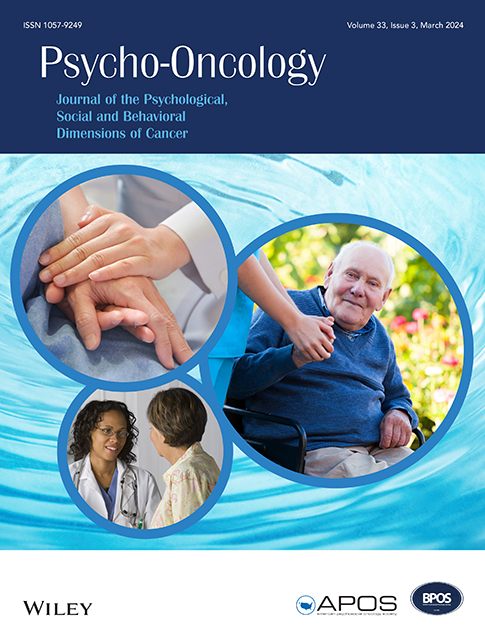The effect of a couple-based posttraumatic growth intervention in supporting couples coping with colorectal cancer: A randomized controlled study
Abstract
Objectives
To promote posttraumatic growth (PTG) in colorectal cancer (CRC) couples, a couple-based PTG intervention was conducted, and the intervention had previously proved be feasible in CRC couples. The current study was conducted to validate the effects of intervention in CRC couples.
Method
This is a randomized controlled study that included 174 CRC couples. All participants were randomized to either the intervention (usual care plus 5-week PTG intervention, n = 87) or the control group (usual care, n = 87). Data were collected from CRC couple dyads at baseline and immediately post-intervention periods. Primary outcome refers to positive changes, and secondary outcomes include marital satisfaction, quality of life (QOL), and anxiety and depression. Multilevel modeling was applied to analyze the intervention effects.
Results
Participants in the program showed increased PTG, marital satisfaction, and QOL both physically and mentally, and decreased levels of anxiety and depression over time. And spousal caregivers showed greater improvement in marital satisfaction and physical QOL compared with patients. In addition, significant intervention effects were shown in the participants' benefit finding, physical health and depressive symptoms.
Conclusion
The study confirmed the effect of the PTG intervention on CRC couples' benefit finding, physical health and depressive symptoms. However, this study only measured outcome variables at two time-points. Future studies should add follow-up assessments to evaluate long-term effects of the intervention in CRC couples.
Registration number
ChiCTR2300067809.
CONFLICT OF INTEREST STATEMENT
The authors declare no conflicts of interest.
Open Research
DATA AVAILABILITY STATEMENT
The datasets generated during and/or analyzed during the current study are not publicly available, but are available from the corresponding author on reasonable request.




